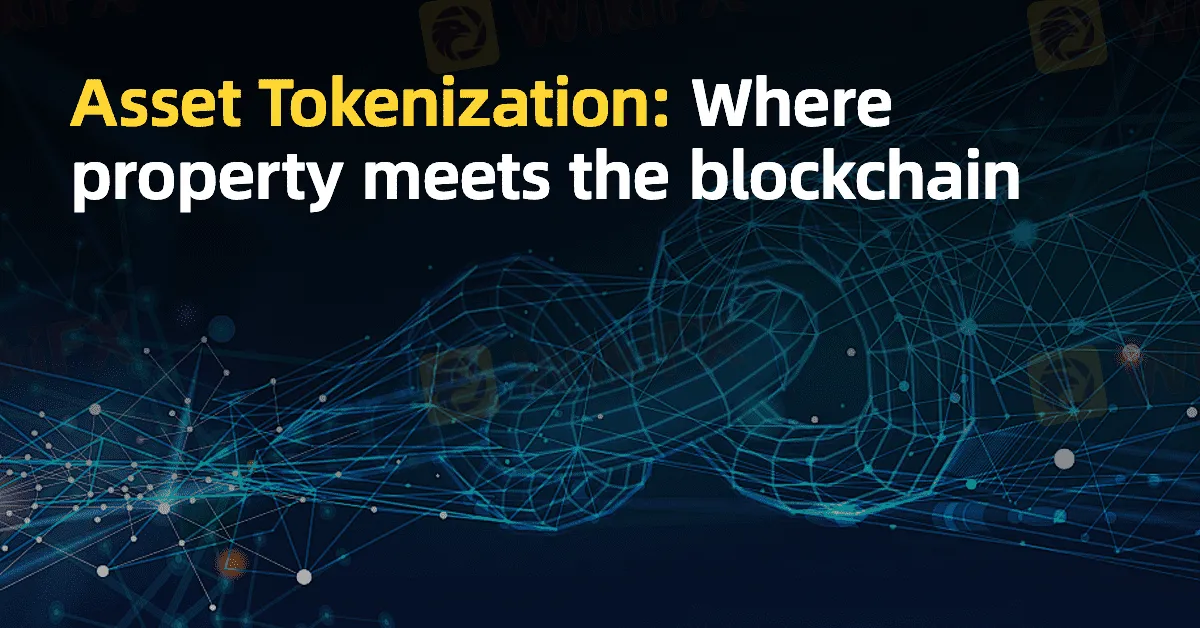简体中文
繁體中文
English
Pусский
日本語
ภาษาไทย
Tiếng Việt
Bahasa Indonesia
Español
हिन्दी
Filippiiniläinen
Français
Deutsch
Português
Türkçe
한국어
العربية
Asset Tokenization: Where property meets the blockchain
Abstract:Asset tokenization is the innovative process of transforming rights to both physical and digital assets into digital tokens on a blockchain.

Understanding Asset Tokenization
Asset tokenization is the innovative process of transforming rights to both physical and digital assets into digital tokens on a blockchain. This process can generate fungible tokens, which are interchangeable, or non-fungible tokens (NFTs), representing distinct assets. The choice of token type hinges on the nature of the asset and its intended application. By enabling tokenization, we can enhance traditional ownership verification methods—like deeds and titles—allowing for more accessible fractional ownership. For instance, tokenizing a commercial property could enable multiple investors to own shares in that property.
Advantages of Asset Tokenization
1. Tokenization allows assets to be divided into smaller, tradable units, facilitating shared ownership among multiple investors.
2. By enabling fractional ownership, tokenization opens the door to asset investments for individuals across various financial backgrounds.
3. Tokenized assets can be more easily traded, potentially enhancing market liquidity.
4. The transparency inherent in blockchain technology ensures that all participants have access to the same information.
5. By reducing the need for intermediaries, tokenization could lower the costs associated with buying and selling assets.
Challenges of Asset Tokenization
1. Legal Recognition Issues: Current legal frameworks may not recognize tokenized asset ownership, creating challenges in enforcement.
2. The rapidly changing landscape of laws surrounding tokenized assets can complicate compliance and diminish investor protections.
3. Tokenized assets, particularly those traded on secondary markets, may experience significant price fluctuations, risking investor capital.
4. Unique assets can be difficult to value accurately, complicating investment decisions.
Conclusion
Asset tokenization marks a transformative step forward in merging real estate with blockchain technology, providing exciting prospects alongside significant hurdles. As this field evolves, stakeholders can explore how fractional ownership and enhanced accessibility can reshape investment landscapes, all while navigating the complexities of regulation and market integration.

Disclaimer:
The views in this article only represent the author's personal views, and do not constitute investment advice on this platform. This platform does not guarantee the accuracy, completeness and timeliness of the information in the article, and will not be liable for any loss caused by the use of or reliance on the information in the article.
Read more

Forex Success Stories: Lessons You Can Use to Win
There can be many ups and downs even for the world’s best forex traders. However, they remain undeterred in their vision to overcome the challenges that come their way. That’s why they form part of forex success stories that continue to inspire generations. One can inherit some lessons to be among successful currency traders. In this article, we will be sharing the lessons you can use to be successful in forex trading.

Top Forex Trading Books Every Beginner Should Read
Boost your forex trading with the best beginner books! Discover top forex books for beginners covering essential strategies, trading psychology, risk management, and success tips.

Forex Trading Signals - Your Gateway to Profitable Currency Trading
Want actionable forex trade recommendations or ideas for currency pair purchase or sale? Forex trading signals provide you with the same. Generated by professional traders, algorithms or trading systems, these signals help traders make informed decisions. Learn more about in this in-depth guide.

Top Forex Pairs for Scalping: Best Currency Choices Explained
Discover the best forex pairs for scalping in 2025. Learn which currency pairs offer top liquidity, tight spreads, and volatility for fast, profitable trades.
WikiFX Broker
Latest News
Top Forex Chart Patterns Every Trader Must Know
Adidas to raise prices as US tariffs cost €200m
Top 4 Forex Scam Tactics Fake Brokers Use to Trap Investors
FRAUD ALERT! Spanish Regulator, CNMV Exposed Scam Brokers
How to use mt4?
Fortrade: A Closer Look at Its Licenses
Euro zone economy ekes out better-than-expected 0.1% growth in second quarter
Inefex: Mastering the Art of Duping Forex Investors
10 Best MUST- READ Books on Forex Trading
Companies from Stanley Black & Decker to Conagra are saying tariffs will cost them hundreds of millions
Currency Calculator


